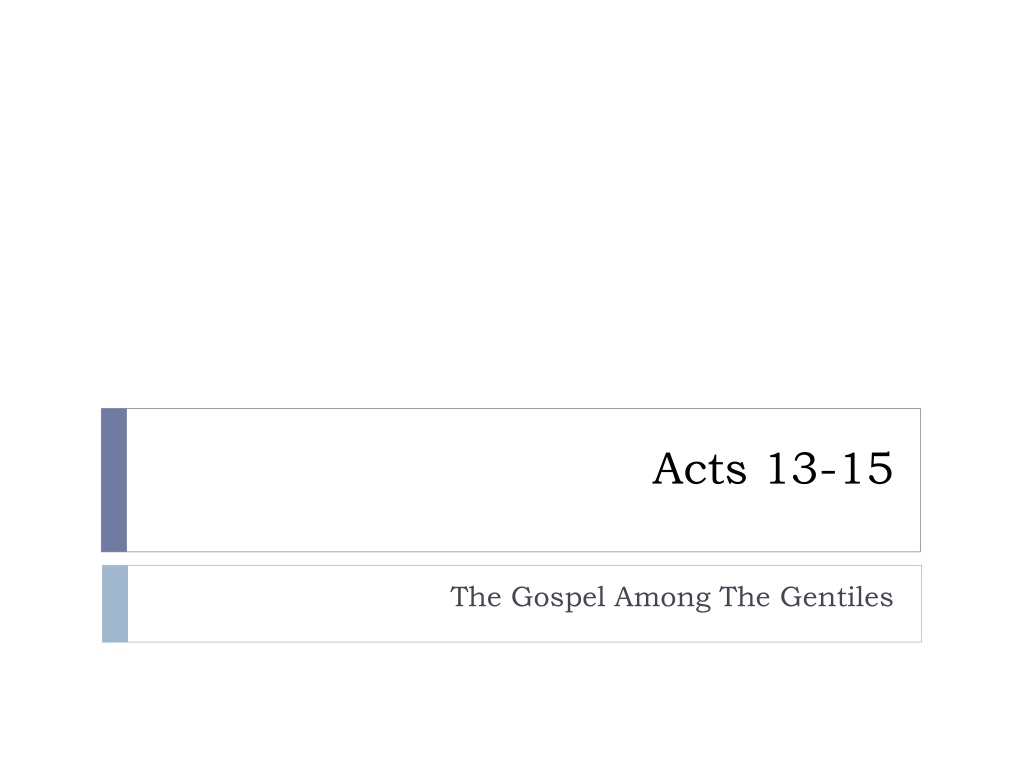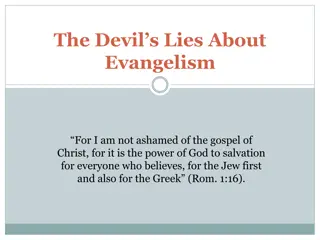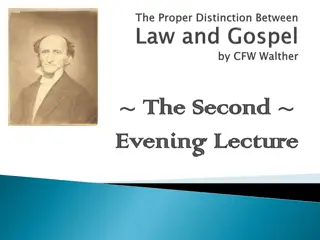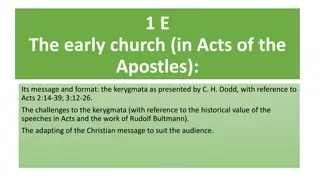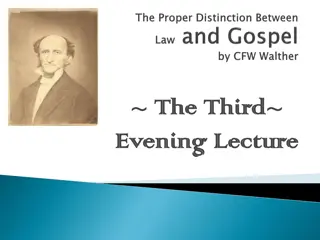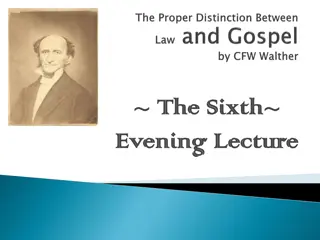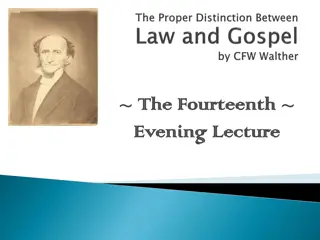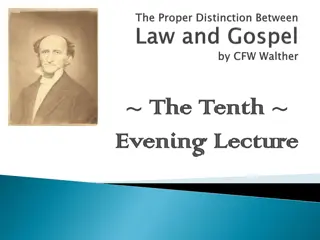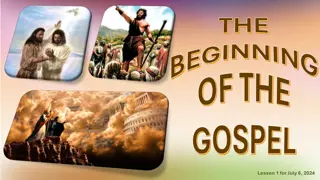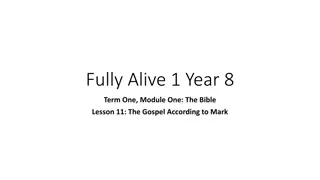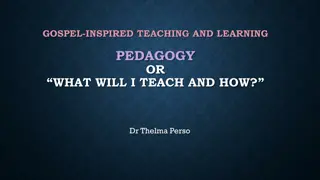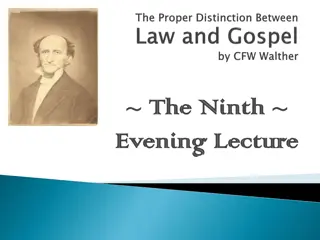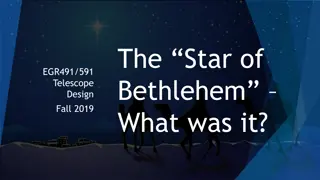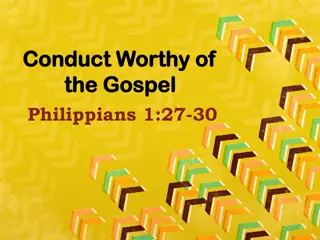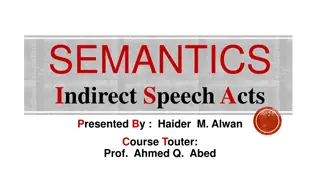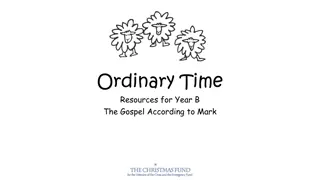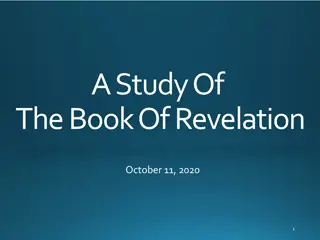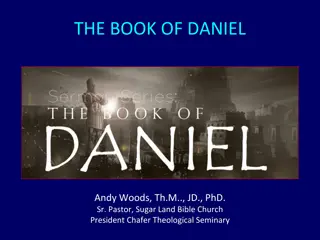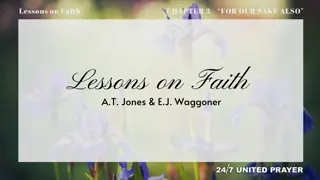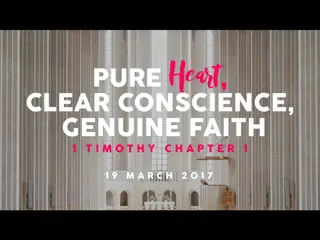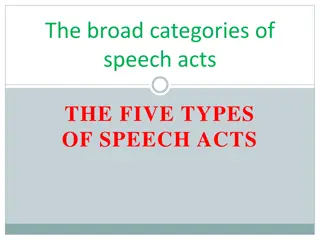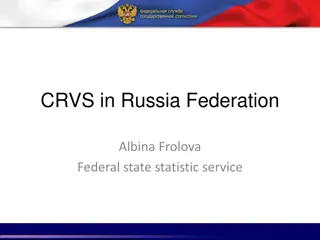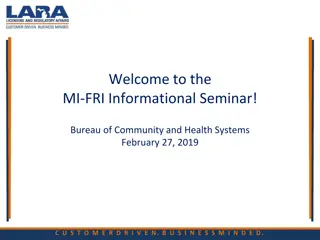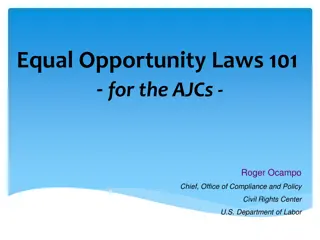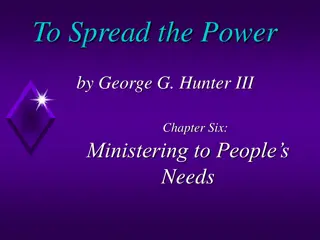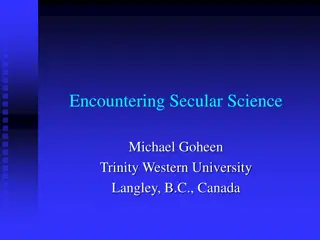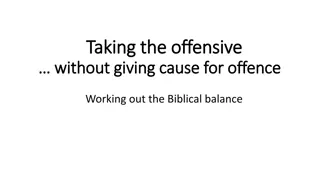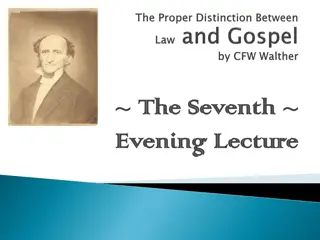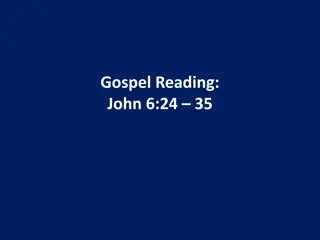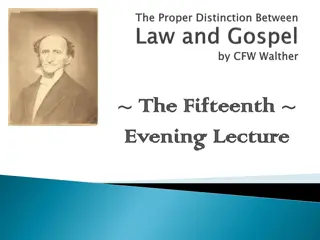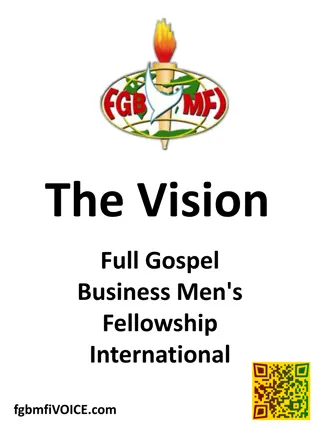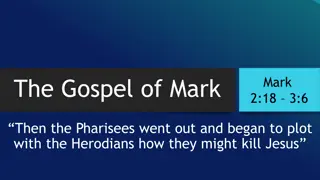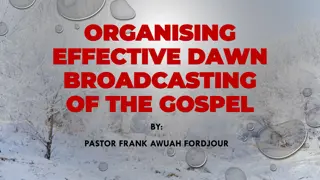Unveiling the Gospel Among the Gentiles in Acts 13-15
In Acts 13-15, we witness the impactful spread of the Gospel among the Gentiles through the dedicated mission of mature Christians empowered by the Holy Spirit. The narrative encompasses sending missionaries, facing spiritual opposition, confronting deception, and navigating challenging spiritual journeys. The account is rich in lessons of faith, courage, discernment, and the power of God over darkness. The story unfolds with a powerful portrayal of divine intervention, cultural awareness, and the unwavering commitment of early Christian leaders, ultimately showcasing the triumph of the Gospel message in the face of adversity.
Download Presentation

Please find below an Image/Link to download the presentation.
The content on the website is provided AS IS for your information and personal use only. It may not be sold, licensed, or shared on other websites without obtaining consent from the author. Download presentation by click this link. If you encounter any issues during the download, it is possible that the publisher has removed the file from their server.
E N D
Presentation Transcript
Acts 13-15 The Gospel Among The Gentiles
Acts 13:1-3 Sending Missionaries Sent by the Holy Spirit (v4) after prayer and fasting Already mature Christians, who knew the Scriptures and were culturally aware and culturally appropriate. The eldership was multi-cultural including two Africans Simeon (probably the one who carried the Cross) and Lucius. A very powerful group both spiritually and socially They ministered to the Lord Prayer and fasting for important decisions about people Laying on of hands for impartation and blessing
Spiritual Opposition (v. 4-8) John-Mark was with them as minister which in this case means servant or assistant. Started in the synagogues Elyamas the sorcerer also called Bar-Jesus (son of Jesus) Sought to distract the consul from God Not all signs and wonders are from God. The Devil opposes missions The Devil substitutes false apostles, false prophets and false teachers. Power encounter between Christ and a false spirit
Elyamas Blinded (v. 9-12) Paul rebukes Elyamas. for his deceptive tactics and villainy/craftiness Deception is the main tactic of the Devil. Son of the Devil tares, sons of the evil one, people whose deepest nature and spiritual DNA is truly evil. Light confronts darkness and the darkness gets blinded. Only for a time so there was some mercy Proves the greater power of Christ. The consul was astonished and chose to believe. Power encounters are necessary when two belief systems are in direct conflict.
John-Mark Departs (v.13) John-Mark is taken to Pergamum where the throne of Satan was (Revelation 2:13) Two huge spiritual threats in a row seems to have been too much for this new missionary and he left the ministry. Paul may have been presumptuous to subject John-Mark to this level of spiritual stress. Need to pick our fights to our level of spiritual maturity Discouragement is a major tool of the Devil. Satan can affect our moods and our willpower Need to rebuke evil moods in the Name of Jesus
Paul In The Synagogue (v 14-23) Paul arrives at Antioch in Pisidia (there were NINE different cities each called Antioch) Paul started preaching to the Jews first Follows cultural procedure and gets permission Similar to Stephen s speech in reciting Jewish history and building a connection for the gospel to be acceptable. Speaks positively of Jesus. Shows how Jewish history leads to Jesus In these kinds of Jewish history sermons there is only one point and it is right at the end and the selection of historical incidents is stage-setting for the grand finale.
John the Baptist (v. 24-29) Forerunner to Jesus Well-known and respected by the Jews Had many followers in the Dispersion (see Acts 19) Jews needed to know that Jesus was the important successor to John the Baptist. Message to the stock of Abraham (Jews) and those who fear God (God-fearing Gentiles in the synagogue) Inclusion of Gentiles. Antioch and Jerusalem were rivals, so portrays the Jerusalem Jews and the bad guys who killed Jesus.
The Resurrection As Rebirth (v. 30-33) Made the enthroned Son of God through the resurrection (see also Romans 1:4) The resurrection today I have begotten thee is a formal statement of co-regency with God the Father Psalm 2:7, Hebrews 1:5,6 5:5 Parallels Philippians 2:5-11 and Psalm 110 Jesus ascends and is enthroned in Heaven, this is an enthronement psalm. Always was the Son of God but now is glorified through His victory over sin and death and His work of redemption.
A New Theology Is Formed (v. 34-39) Paul s speech now becomes very close to Peter s speech on the Day of Pentecost quoting the same facts about David and the same Psalms. We see Peter, Stephen and Paul taking the exact same line of evangelism and theology with the Jews. This was part of the revelation about Christ in the Psalms and the Prophets revealed on the Emmaus Road. David served the will of God is his generation (v. 36) POWER STATEMENT: Acts 13:39 And by him all that believe are justified from all things, from which ye could not be justified by the law of Moses.
The Teaching Takes Off (v. 40-44) The Greek-speaking Jews, the proselytes, and the God- fearing Gentiles are eager to hear the message. The heavy burden of the Law weighed them down and they were often outsiders in the synagogue. They tell their friends and the next Sabbath practically the whole city is ready to hear Paul and Barnabas. The arrival of the Messiah The promise of the resurrection The inclusion of the Gentiles The possibility of full justification without works Were very powerful and attractive messages to these folks (but repellent to many Orthdox Jews)
Jews Reject, Gentiles Accept (v. 45-49) The start of a pattern, the Orthodox Jews reject the message, the Gentiles and others eagerly embrace it. The word of God spreads rapidly, this time without many miracles, just because the gospel was such GOOD news! Paul says it was necessary to preach to the Jews first. However because of stubbornness he turned to the Gentiles. The Jews judged themselves as unworthy of eternal life . Christ declared as a Light to the Gentiles. We do not have to persist with unbelieving and scornful blasphemers against the gospel.
First Persecution (v. 50-52) The unbelieving Jews stir up trouble at a high and influential level and persecute Paul and Barnabas. They leave the city and brush the dust off their feet. See Matthew 10:11-15 Rejection of the gospel is not always the fault of the messenger! Sometimes people just have hard hearts. Filled with joy and with the Holy Spirit. This reaction is commended by Jesus (Luke 6:22,23) a result of the Spirit s indwelling (Romans 15:13) a characteristic2 Corint of the early Church (2 Corinthians 8:2, 1 Thessalonians 1:6) and will be rewarded (1 Peter 4:13)
Division At Iconium (14:1-7) Paul and Barnabas preach the gospel but rabble-rousers stir up both Jews and Gentiles against them Yet they stay and preach for a long time and Jesus grants signs and wonders to be done through their hands. Miracles are granted by Christ to bear witness to the word of His grace the gospel of justification by faith alone, without justifying religious works. The city becomes divided, a plot is formed against them, they learn of it and escape in time. This is Jesus training flee to the next city Matthew 10:23 They keep on preaching the gospel in Lystra and Derbe.
Lystras Lame Man Healed (v. 8-14) Paul repeats John & Peter s actions in Acts 3 looks in the eyes of the lame man, says rise up as a command in a loud voice and the lame man is healed. This first missionary journey is a close parallel to the early days in Jerusalem but gets a totally different interpretation they are regarded as Greek gods! Zeus, the chief God, Hermes the messenger God , also called Mercury, a mischief-maker. Talkative Paul gets this label! Culture strongly influences our interpretation! They miss the cultural cues because its all going on in the local language of Lyaconian. Paul and Barnabas are aghast at the attempt at worship esp. when the priest of Zeus arrives with an ox and garlands to do sacrifice.
The Definition of God (v. 15-17) See also Genesis 1:1, Revelation 14:7, Acts 4:24, 17:24-28, Psalm 146:5,6; and Jeremiah 10:11 vs. Jeremiah 32:17 The living God (Jeremiah 10:10, Daniel 6:26) Creation an essential witness: Romans 1:20 God is defined in the beginning as Creator and in Revelation (in the last angelic witness) as Creator. God is that living Triune spiritual being who created the Heavens, the earth, the springs of water and everything in them. The God of the Universe Life and Nature. Provides all the good things of the natural order rain, crops, fruitful season, gladness, etc.
A Sudden Turn and Courage (v. 19-22) Paul is dragged outside the city, stoned and left for dead. This may have been his visit to the Third Heaven. The disciples pray, Paul is revived, he gets up and goes back into the city! Goes on to Derbe, makes many disciples there . Then returns to Lytsra, Iconium and Antioch to check up on the new Christians and to encourage them (despite all the previous rejection) Does not pretend that the Christian life is easy: Act 14:22 strengthening the souls of the disciples, encouraging them to continue in the faith, and saying that through many tribulations we must enter the kingdom of God.
The Return Journey (v. 23-28) Goes from Antioch in Pisidia (v. 21,24) to Antioch in Syria (v. 26) Elders are appointed in every church and prayed over, with fasting. Plural, local, anointed leadership teams. Church - universal (body of Christ), regional (the church in Asia), local (each church) Gk: ekklesia assembly, political gathering, people called by a trumpet. They return even to the tough places like Pergamum and proclaim the gospel there. They report back to their home church in Antioch on the success of their missions trip what God had done with them and the door of faith for the Gentiles.
Circumcision For Salvation (15:1-5) Group One: Yippee!! The Gentiles are getting saved, miracles are happening, God is at work!!! Glory!! Group Two : Not so fast! This has to be brought into line! They have to become exactly like us!! Unity without Uniformity is God s way Heaven will be full of cultural diversity (Revelation 5:9) Circumcision is of the heart (Romans 2:25-29, Colossians 2:11, 3:11; 1Corinthians 7:18,19, Galatians 6:15, Philippians 3:3) Has nothing to do with justification (Romans 3:28-31) Abraham was blessed without circumcision (Romans 4:7-13) Legalistic circumcision is a spiritual trap (Galatians 5:1-4) Faith working through love is what really matters (Galatians 5:5,6)
Peters Reasoning (15:6-11) Peter argues from undeniable spiritual experience God makes no distinctions God cleansed their hearts by faith The heart is God s to judge and to cleanse God did the same with them as with us (Messianic Jews) Why are you putting God to the test? (By contradicting His clear purposes) The law is an unbearable yoke that we should not inflict upon anyone. Both Jews and Gentiles are saved through grace.
James Concedes The Point (v. 12-18) After the power of Peter s speech the critics fall silent and the two apostles (Paul and Barnabas) recount all that God has done in signs and wonders and miracles. James is now theologically cornered by Peter s argument and the amazing signs and wonders. He uses Peter s Jewish name Simeon God will rebuild the ancient spiritual tabernacle worship of David (before the Temple) so that all the Gentiles can seek God. Amos 9:11,12 This salvation of the Gentiles is no accident is an ancient work and plan of God
James Rules (v. 19-21, 29) James decides on a few basic rules: No idols No fornication No eating strangled animals No blood What is meant by blood is problematic it could mean: no violence OR no blood products, eating with the blood OR no ceremonies involving blood Probably not eating blood products Genesis 9:4, Leviticus 17:10- 14, Deuteronomy 12:23-25 Moses has those who read him every Sabbath - its not our job to defend Moses. 1. 2. 3. 4.
The Letter Makes Peace (v. 22-33) A letter from the apostles and elders is written in their hand and sent with Paul and Barnabas to Antioch. It exposes the Judaizers as pretenders with no authority Circumcision is not required Contains James rules The group going to Antioch contained senior representatives (Judas and Silas) from the Hebrew Church in Jerusalem who then exhorted the church in Antioch, confirmed the letter, brought unity, and then Judas returned to Jerusalem. Prophets: people with deep insight into God s truth
The Argument (v. 36-40) A huge disagreement between Paul and Barnabas over whether John-Mark should go with them. John-Mark was Barnabas s nephew Barnabas was a quiet encourager, Paul on the other hand was a driven, energetic, vocal and argumentative. Barnabas takes John-Mark and heads to Cyprus, their home territory Paul takes Silas and goes to revisit the churches in the other areas of the first missionary journey. The argument works to create two missions teams instead of one.
Strengthening The Churches (v. 35, 36,41) Churches don t function on auto-pilot, even with the Holy Spirit, they require apostles, prophets, evangelists, pastors and teachers. There needs to be a variety of leadership including visiting authoritative teachers. On their own churches tend to become weak, lazy and disordered. As a rule of thumb the more isolated the church, the worse the spiritual shape it ends up in. We need to be strengtheners of the church and not tear it down or injure it. We should live in fellowship with other churches and have some pulpit rotation (but not all the time).
